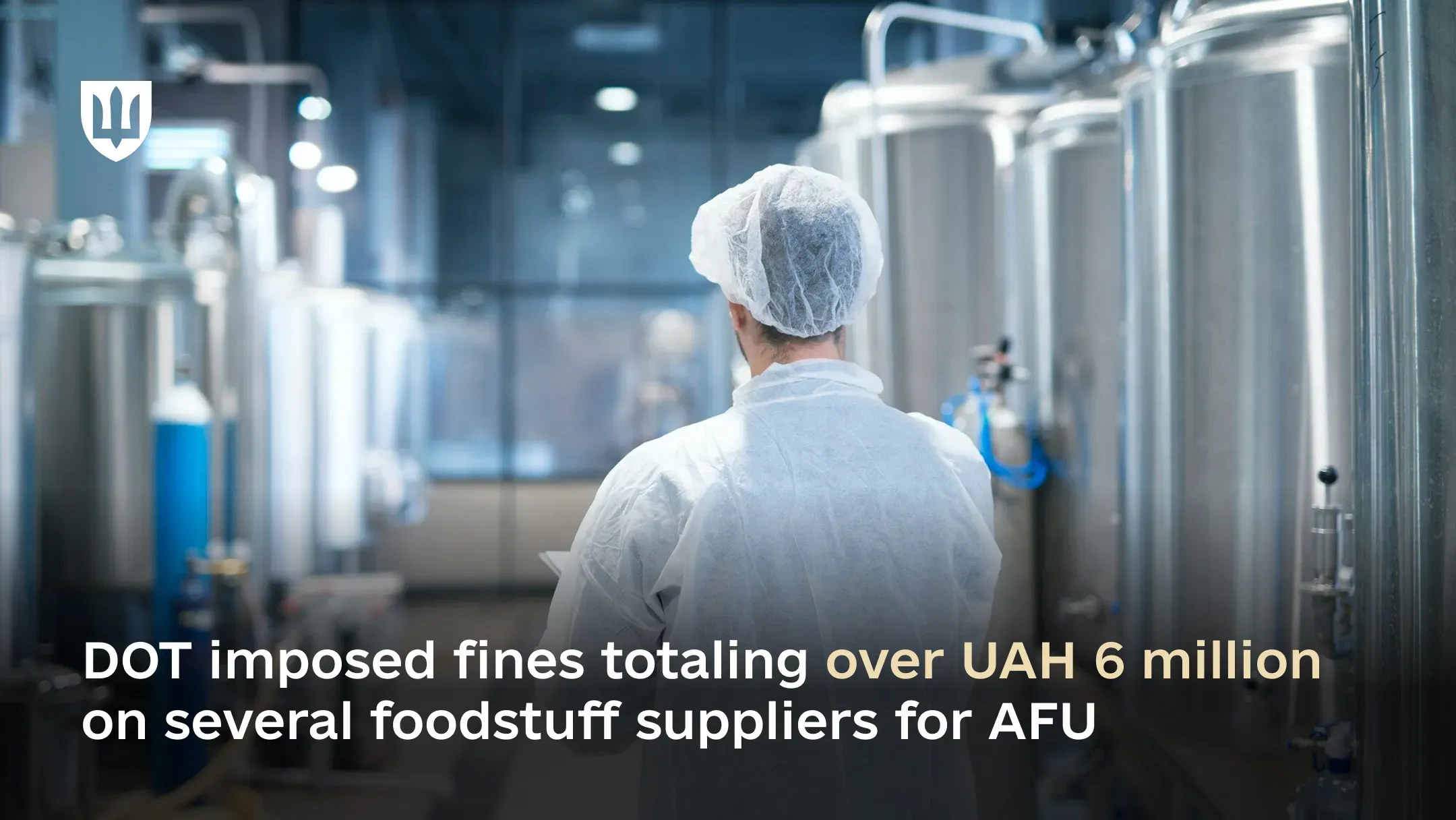DOT, the Ministry of Defence's acquisition agency, imposed fines totaling over UAH 6 million on several foodstuff suppliers for the Armed Forces of Ukraine

In the first quarter of 2025, the Defence Ministry's acquisition agency, DOT, imposed fines totaling over 6 million UAH on several foodstuff suppliers for the Armed Forces of Ukraine. The penalties were due to the detection of falsified products, particularly dairy items, which failed to meet state standards.
“In Q1 of 2025, the DOT signed contracts for food provisions for military personnel amounting to UAH 21.4 billion. This is a substantial resource, and we cannot allow a single hryvnia to be spent on substandard foodstuff for the AFU. Quality control and transparency in supply are not only matters of responsible use of state funds but also of the safety and trust of our military personnel. That is why we respond swiftly to violations. We are systematically cultivating a new culture of accountability among suppliers,” emphasized Glib Kanievskyi, Director of the Defence Ministry's Procurement Policy Department.
One of the key focuses of the DOT's operations is ensuring the quality and safety of products supplied to the Armed Forces of Ukraine. In 2025, drawing on lessons from the previous year, contracts now clearly distinguish between ‘substandard’ and ‘falsified’ goods. This has strengthened the responsibility of suppliers in cases of intentional breaches of delivery terms and the use of unauthorized additives for economic profit.
The first products subjected to enhanced scrutiny were butter and rennet-curd cheese—categories most susceptible to falsification. Inspections were conducted by the Food Safety Department of the Ministry of Defence at the DOT’s request. Samples for inspection were collected directly from military units to eliminate the possibility of manipulation.
Out of 35 laboratory tests, 19 samples were found to be falsified, primarily due to the presence of non-dairy fats, which violates the State Standards of Ukraine. Results for six additional samples are still pending.
Based on the negative findings, the DOT takes the following actions:
- Impose fines on the supplier;
- Block further delivery of the affected batch;
- Notify other contractors of the violation;
- Prohibit the distribution of products from the implicated brand.
“We view quality control not as a formality, but as a tool for making a real impact on security and trust in the supply chain. If a product fails to meet standards or shows signs of falsification, it must not be consumed by military personnel. All violations are documented, and suppliers are held accountable,” stated Halyna Litosh, Program Director of the Food Project Portfolio Management at DOT.
As part of its efforts to strengthen quality control, the DOT is preparing to inspect other foodstuff categories potentially vulnerable to falsification and to re-inspect products that initially failed testing protocols. For the sake of objectivity and transparency, suppliers are informed about the specific items only after the initial laboratory tests have been completed.